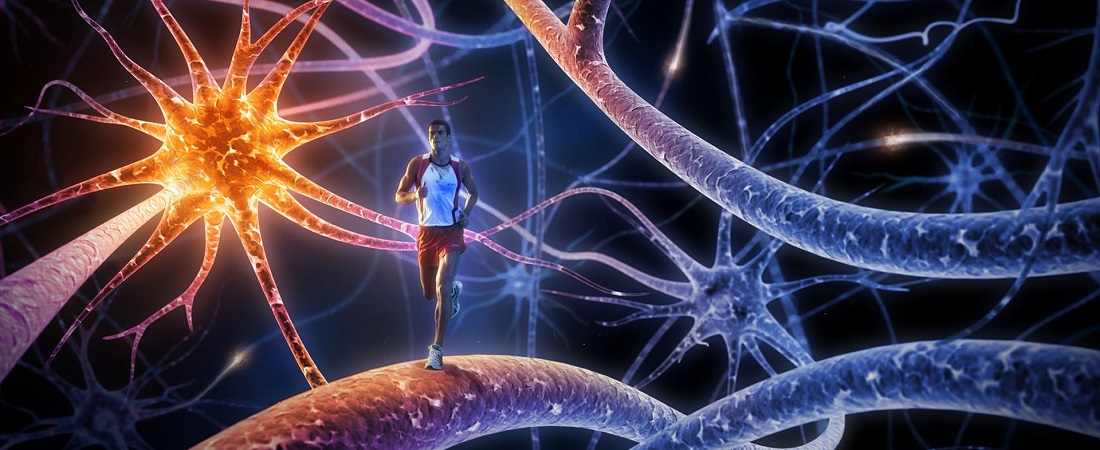Magnesium deficiency is very frequent and nearly 80% of people suffer from it. Which is sad, because minerals are often more important than vitamins – without them the vitamins cannot be formed or absorbed. Magnesium is also more vital than sodium, calcium, and potassium, as all of these are dependent on magnesium.
This mineral is one of the most important elements our body needs after oxygen, water and basic food.
It`s involved in more than 300 metabolic processes and performs many important functions in your body. For instance, it provides normal metabolism of carbohydrates, fats and amino acids, regulates blood circulation and heart muscle function. Also, it contributes to the smooth functioning of nerves and muscles.
It has to be said that not the lack of calcium, but the deficiency of magnesium can be the real cause of bone loss. In addition, it can cause diabetes, anxiety disorders, depression and hyperactivity symptoms in children.
However, magnesium is often lacking in food, and in some cases, food supplements are also not helpful. How do you realize that you may have a magnesium deficiency? What are the risk factors and what can you do in this case?
What does magnesium do for your body?
Heart and blood circulation
- Keeps your heart healthy;
- regulates cholesterol in the blood and preventing cholesterol deposition;
- regulates blood pressure;
- involved in sugar metabolism in blood (insulin secretion);
- ensures good vascular tone;
- participates in blood coagulation processes.
Nervous system & muscle work
- Involved in nervous work, nerve calming, nerve impulse generation and transmission;
- participates in muscle (including heart muscle) work and muscle relaxation;
- helps to increase muscle growth and physical strength;
- regulates breathing.
Fights against diseases
- Prevents bone density loss and bone loss (osteoporosis);
- participates in anti-inflammatory reactions;
- prevents the development of atherosclerosis;
- prevents the formation of kidney stones;
- treats weakened immune system and prevents cancer;
- supports the digestive process and neutralizes stomach acid;
- helps to burn fats and carbohydrates, prevents obesity;
- helps with the treatment of sclerosis.
Other important functions
- Activation of amino acids;
- providing energy and regulating body energy;
- work of enzymes;
- transmission of genetic information;
- preventing migraine and headaches;
- protein synthesis;
- melatonin production and sleep regulation;
- taking part in the intake of many vitamins and minerals. Controlling the transport and content of calcium, copper, zinc, potassium, vitamin D and other essential nutrients in the body;
- controlling calcium levels and preventing them from leaving the body;
- combating premature aging;
- participating in hundreds of enzymatic systems and processes involved in cellular exchange;
- generating the energy needed to release cells from toxins.
What happens if your body can’t get enough magnesium?
Magnesium deficiency can cause more illness than any other nutrient deficiency, because it is undoubtedly one of the most important minerals in the body. It basically affects all organs.
According to statistics, 80% of the people suffer from magnesium deficit.
However, magnesium deficiency is often not suspected. So millions of people are increasingly taking medication to relieve symptoms. Although they could simply find relief from magnesium supplements or proper nutrition. The signs of a possible lack of magnesium should first and foremost be noticed, as it is not yet well known in conventional medicine.
This is because blood samples from a doctor may not always give the right picture and show magnesium deficiency.
Namely, only 1% of the magnesium in the body is found in the blood. So the level of magnesium in the blood does not reflect the actual amount of magnesium in the body. Many of the symptoms below may also be caused by something else, but if several of the following symptoms occur at the same time, it is most likely due to magnesium deficiency.
Magnesium deficiency, symptoms and consequences
Skin
- Skin, gum or bladder infections.
- Vaginal fungal infections that are frequent.
- Sores and bruises that heal slowly.
- Mouth ulcers — also known as canker sores.
- Dry, itchy skin.
Muscle work
- Squeezing sensation in the chest, inability to breathe deeply, frequent sighing, difficulty in breathing, difficulty swallowing or cramping in the throat.
- Muscle problems: muscle tension, muscle aches (fibromyalgia), skeletal muscle spasms, tension in the upper back, shoulders and neck, leg cramps, foot pains or muscle twitches may be the first signs of magnesium deficiency. Including tension headache and jaw or temporomandibular disorders. Because if there is too little magnesium in the body, the body takes the missing magnesium from other parts of the body. Such as the leg muscles, and directs it to the heart muscle. The heart is a vital organ and its relaxation is more critical to the body than its own muscles. Thus, in the case of magnesium deficiency, leg cramps or other muscular disorders may occur.
- Constipation, indigestion, bladder spasms, bladder incontinence, menstrual cramps, eye sensitivity and problems with light level change – all of these are symptoms of smooth muscle contraction.
- Muscle wasting (muscle atrophy).
- Eye flushing and eyelid twitching.
Heart & blood circulation
- Cardiac arrhythmias, angina pectoris and high blood pressure. These symptoms are due to cardiovascular coronary artery spasms. Magnesium and calcium work together to support normal blood pressure and protect the heart, but the lack of magnesium also causes calcium deficiency.
Nervous system
- Tremors (shaking hands, head, chin, legs).
- The numbness and tingling sensation and, for example, the vibration sensation are the symptoms of magnesium deficiency associated with the peripheral nervous system.
- Sleep problems. Magnesium regulates melatonin production and melatonin levels in turn regulate sleep. At night, the level of magnesium decreases, resulting in poor sleep in the REM sleep phase and does not allow for a rest.
- Headaches, migraine and dizziness. Magnesium is an important mineral that balances neurotransmitters in the body.
- Central nervous system disorders such as insomnia, anxiety, hyperactivity, restlessness, inability to stand still, panic disorder, agoraphobia and premenstrual irritability. One of the tasks of magnesium is to help control the adrenal hormones that affect the psychological balance.
Mental
- Awareness, confusion, memory disorder, depression, and sometimes even visual hallucinations are often the effects of magnesium deficiency and improve by taking a supplement of this mineral.
- Autism spectrum disorders and other neurological problems in children such as restlessness, inability to stand still, swinging the body back, tooth crushing, hiccups, noise sensitivity, attention and concentration problems, irritability, aggression and frequent state of tension may all be related to magnesium deficiency.
- Noise sensitivity, or sensitivity to loud sounds, is caused by tension in the leg muscle of the ear.
Other symptoms & diseases
- Bronchial spasms. The production of histamine in the body that causes inflammatory reactions in the body and bronchospasm increases with magnesium deficiency, which can lead to asthma.
- Diabetes (Type II) or insulin resistance. Magnesium plays an important role in sugar metabolism and magnesium deficiency has been associated with the development of diabetes. Namely, without magnesium, insulin is not able to transport sugar into cells, but if glucose and insulin remain in the blood, they may cause different types of tissue damage there. One of the possible consequences is diabetes.
- Organ calcification.
- Fatigue, lack of energy, physical and mental exhaustion, low energy levels and weakness.
- Dental breakdown, skeletal development disorders, osteoporosis, and slow bone fractures. In the case of magnesium deficiency, a large amount of calcium is excreted from the body in the urine, and thus the magnesium deficiency is also indirectly responsible for calcium deficiency. Also, low level of potassium has been associated with magnesium deficiency.
- Blurred vision.
- Thirst may not only refer to low fluid intake but also to nutrient and electrolyte depletion. Common examples are magnesium, potassium, bicarbonates, chlorides and sodium.
- Pre-menstrual fluid accumulation in the body and/or breast tenderness, premenstrual syndrome and hormonal imbalance.
- Feeling hungry and changing appetites. Constant appetite for salty food, while needing carbohydrates and intolerance.
- Frequent urination.
- Nausea, vomiting, fatigue and weakness.
Risk Factors – why does magnesium deficiency occur?
Physical
- Stomach acid too low.
- Various infections and viruses suffer from mineral deficiency in the body.
- Intestinal disorders (eg, leaking bowel syndrome, small intestinal bacterial overgrowth), and other chronic diseases can also cause absorption problems for both magnesium and other minerals.
- Excessive sweating leads to the removal of magnesium from the body and thus causes magnesium deficiency.
- Mineral uptake is also affected by age.
- The intestinal microflora plays a major role in the absorption of magnesium, and many people (including children with autism spectrum) have problems with the absorption of magnesium, even when it reaches the intestine. Thus, intestinal health is extremely important here. It is argued that lactobacilli may affect the uptake of magnesium as they disrupt the substances that interfere with the absorption of magnesium.
Mental
- Stress can cause magnesium deficiency, and magnesium deficiency, in turn, contributes to increased stress. Stress hormone cortisol and adrenaline have been associated with a decrease in magnesium levels in the body. Stressful situations require more magnesium from the body, so a psychological and physiological stress situation (surgery, burning, etc.) can lead to magnesium deficiency in the body.
Diet
- Regular consumption of lemonade and other carbonated beverages. Many darker-colored lemonades contain phosphates that prevent magnesium from being absorbed. If your menu is versatile and balanced, but you still drink lemonade alongside food, it basically resets all the work and takes the magnesium out of the body.
- Eating too sweet and eating pastries. Refined sugar leads to the removal of magnesium from the body through the kidneys.
- Drinking plenty of coffee and black tea daily prevents the absorption of minerals, including magnesium. In the case of caffeine consumption, the kidneys must release an additional amount of magnesium, regardless of how much it contains in the body.
- Today’s agriculture focuses on growing monocultures, depending on chemical fertilizers, pesticides and herbicides. Thanks to this, the soil is low in magnesium and our food does not contain enough of the necessary mineral.
- Excessive consumption of refined and processed food. Such food does not contain the necessary nutrients for the body.
Consumption of drugs & food supplements
- The consumption of drugs (laxatives, antibiotics, medicines for heart disease, asthma medications and anti-baby pill) contributes to the development of magnesium deficiency. They damage the intestinal mucosa and cause magnesium intake.
- Excessive calcium intake without magnesium. Magnesium regulates calcium in the body. When only calcium supplements are administered without the balancing effect of magnesium, this can lead to magnesium deficiency and a number of serious problems (shrinkage of the arteries, limitation of blood flow to the heart muscle and brain, headaches, increase in blood pressure and worse, but fortunately and in rare cases heart attack).
Lifestyle
- Likewise, the level of magnesium in the body also reduces excessive alcohol consumption.
- Not the right diet for active sports or hard physical work.

What to do in case of magnesium deficiency?
Initially, it is most important to understand why magnesium deficiency has occurred. Whether any of the above reasons or daily habits can prevent it from absorbing, excessively lifting it out of the body or not getting enough of the magnesium in the food.
The reasons why the body does not possess magnesium should be eliminated and, first and foremost, the microflora of the intestine should be arranged as necessary.
Luckily, it is nearly impossible to over consume magnesium, because for example, if you have taken too much of magnesium supplement, your body simply responds with diarrhea.
The adult man’s daily need for magnesium is about 380 mg and for women between 310 and 320 mg. The daily magnesium need of a pregnant women is approximately 350-360 mg.
There is also a higher than average need for magnesium in nursing mothers and teenagers.
As with all vitamins and minerals, the best way to consume magnesium is to incorporate it into your menu with pure organic food. However, magnesium has a unique ability to absorb well through the skin.
The best magnesium sources
Natural sources
- Seeds and nuts. Especially pumpkin, sunflower and sesame seeds, almonds, Indian nuts and nuts. 100 – 200g of seeds or nuts per day provide a daily recommended amount of magnesium.
- Magnesium-rich herbs such as basil, estragon, sage and coriander.
- Algae and other marine plants.
- Whole grains such as quinoa, buckwheat (about 800 g of buckwheat porridge for your daily magnesium needs), whole grain or black bread (about 1000g per day) and brown or whole wheat rice (about 900g per day).
- Dark green vegetables and leafy vegetables like spinach, nettle and zucchini. Dark green vegetables are recommended precisely because magnesium is found in the chlorophyll molecule. Chlorophyll is a pigment found in plants that gives a green color. Ideally, different foods could be combined. For example, make a fresh salad, to which you add spinach (30 g of spinach is about 39% of the daily magnesium requirement), beet leaves (30 g = 24% of the daily dose), black beans, quinoa (1 cup = 30%) or pumpkin seeds ( quarter cup = 48% of daily requirement).
- Vitamins C and B6 help the body absorb magnesium, so it’s wise to consume it with magnesium-containing foods. To get vitamin C, eat citrus fruits (especially grapefruit, orange), berries, peppers and other vegetables. You can get vitamin B6 by eating avocado, bread, legumes, banana, fish, potatoes, liver, egg yolk and nuts.

External use
Use magnesium salts such as Epsom salt in bath water. It will absorb through the skin when you add it to the bath water. So it`s a good source of magnesium, relaxes the muscles and lowers blood pressure.
You can also apply magnesium chloride, called magnesium oil directly to the skin. It absorbs well and works specifically on psoriasis and eczema. It also acts as a reliever of muscle cramps and muscle pain.
Dietary supplements
The magnesium supplements on sale are not all well absorbed to ensure the daily dose required. For example, your body does not absorb magnesium oxide very well. Therefore magnesium glycinate and chelate are most likely to absorb better and be more effective.
So, when choosing a magnesium supplement, the most absorbable types. The best ones are magnesium glycinate and magnesium citrate (preferably liposomal as it is easier on your stomach). Although magnesium bound to Krebs cycle chelates (malate, succinate, fumarate) may also be a good choice.
It is always wise not to exceed the recommended amount in the product information leaflet. Although, it should be known that those who are actively engaged in sports or doing physically demanding work will have a greater need for magnesium. This is even greater for top athletes.
Dietary supplements typically contain approximately 400 mg of magnesium per tablet. This is the recommended daily dose. Magnesium-Glycinate is considered the best absorbing magnesium, but you may want to consider also liposomal magnesium, as it has exceptional trick up its sleeve.
Starting from the intestine and ending with the brain – magnesium is necessary for every cell in your body!
The importance of magnesium for children
Magnesium is just as important for children as it is for adults. Children need magnesium for metabolism (which allows cells to use energy from the carbohydrates kids eat), so that also other vitamins and minerals could do their job.
Magnesium and calcium work together to help a child’s muscles to function properly. Calcium promotes muscle contraction and magnesium helps muscles to relax. Magnesium also helps activate vitamin D and calcium to keep your child’s bones strong and healthy.
Magnesium is also crucial for heart health, for preventing tooth decay and supporting the immune system when it is under stress. It has a relaxation factor that even plays a role in promoting and improving a child’s sleep.
Magnesium deficiency in children
Magnesium deficiency in children has not been noticed in the past, but as more and more children eat mainly processed foods – magnesium deficiency is becoming more and more prevalent also among our little ones.
Deficiencies may be most common in children with digestive disorders such as celiac disease, chronic diarrhea or type 2 diabetes (31).
Magnesium deficiency signs in children
- Early signs of deficiency in children include loss of appetite, nausea, vomiting, fatigue and weakness.
- If magnesium deficiency becomes more severe, symptoms may include numbness, tingling, sleep problems, muscle contractions or seizures.
- In extreme cases, signs of magnesium deficiency in children may include irregular heart beats.
- Magnesium deficiency in children may also affect behavior. Notably, magnesium deficiencies in children have been associated with mood changes, moodiness, irritability, hyperactivity, concentration difficulties, insomnia and anxiety. Some studies have suggested that higher magnesium intake may also be associated with support for improvements in the above behaviors (10).
All of the above symptoms may be signs that you should consult your pediatrician or registered dietitian. A number of behavioral problems, and ADHD, have also been associated with possible nutrient deficiencies, particularly with magnesium deficiencies. A focus on nutrition is an important starting point for many behavioral problems in children (10)!
Magnesium for children – does my child need a magnesium supplement?
While it is always best to address nutrient deficiencies with food first, there are situations where magnesium supplementation may also be an option. This is the case if your child has a dietary restriction that prevents your little one from consuming enough magnesium-rich foods. Constipation is also a contributing factor to magnesium supplementation (10).
If you are considering supplements to boost your child’s magnesium stores, be sure to contact your pediatrician in advance for advice on your child’s unique needs (10).
In summary
Several factors (e.g., weight, sex, dietary intake, gastrointestinal pH or acidity, and other environmental factors) that influence magnesium status, combined with the wide variability in gut, kidney, and tissue handling, make diagnosing individual magnesium deficiency extremely difficult.
Therefore, until an unambiguous biomarker for magnesium deficiency is identified and validated, it is worth exploring an alternative approach to diagnosing magnesium deficiency, which may initially be simply an assessment of risk factors and symptoms.
For example, a person who has risk factors for magnesium deficiency due to diet (e.g. high intake of soda, coffee and processed foods); who is known to use drugs that affect magnesium absorption (e.g. diuretics, antacids, oral contraceptives); who has medical conditions (e.g. coronary heart disease, diabetes and osteoporosis); clinical symptoms (e.g., leg cramps, sleep disturbances and chronic fatigue); or metabolic syndrome – although you may ask your doctor to measure serum and/or 24h urine magnesium, you should bear in mind that it is quite likely that the results of laboratory tests may be within the reference range (0.75-0.85 mmol/L for serum magnesium), i.e. within the normal range, and may not show the actual magnesium deficiency in your body.
Signs of deficiency in at-risk individuals may justify changes in the medications they take, adjustments to their daily diet (increasing their intake of higher-magnesium raw foods and decreasing their intake of low-magnesium foods and processed foods), and/or taking high-quality magnesium supplements (11).
NB! The information provided here is for informational purposes only, so do not consider it as health care or medical diagnosis and treatment. Do not consider this information as a guarantee of the results you want to achieve. In addition, this information is not intended to replace the advice of your physician or other healthcare professional.
Even more, you should not use it to diagnose or treat a health problem. Before changing or discontinuing your existing medication, treatment, or care, or taking any dietary supplements, be sure to consult with your healthcare professional or doctor before starting any diet or program, or if you suspect you may have a medical condition.
Compiled by Maria-Helena Loik
Photos: Pixabay.com, Pexels.com, Shutterstock.com
Sources:
- Natural Society
- GreenMedInfo
- Wellness Mama
- Wikipedia
- Ods.od.nih.gov
- Drcarolyndean.com
- Whfoods.com
- Ancient-minerals.com
- Magnesium Deficiency in Kids; What you Should Know — Nourished Beginnings | Online Nutrition for Children and Women
- Challenges in the Diagnosis of Magnesium Status – PMC (nih.gov)











